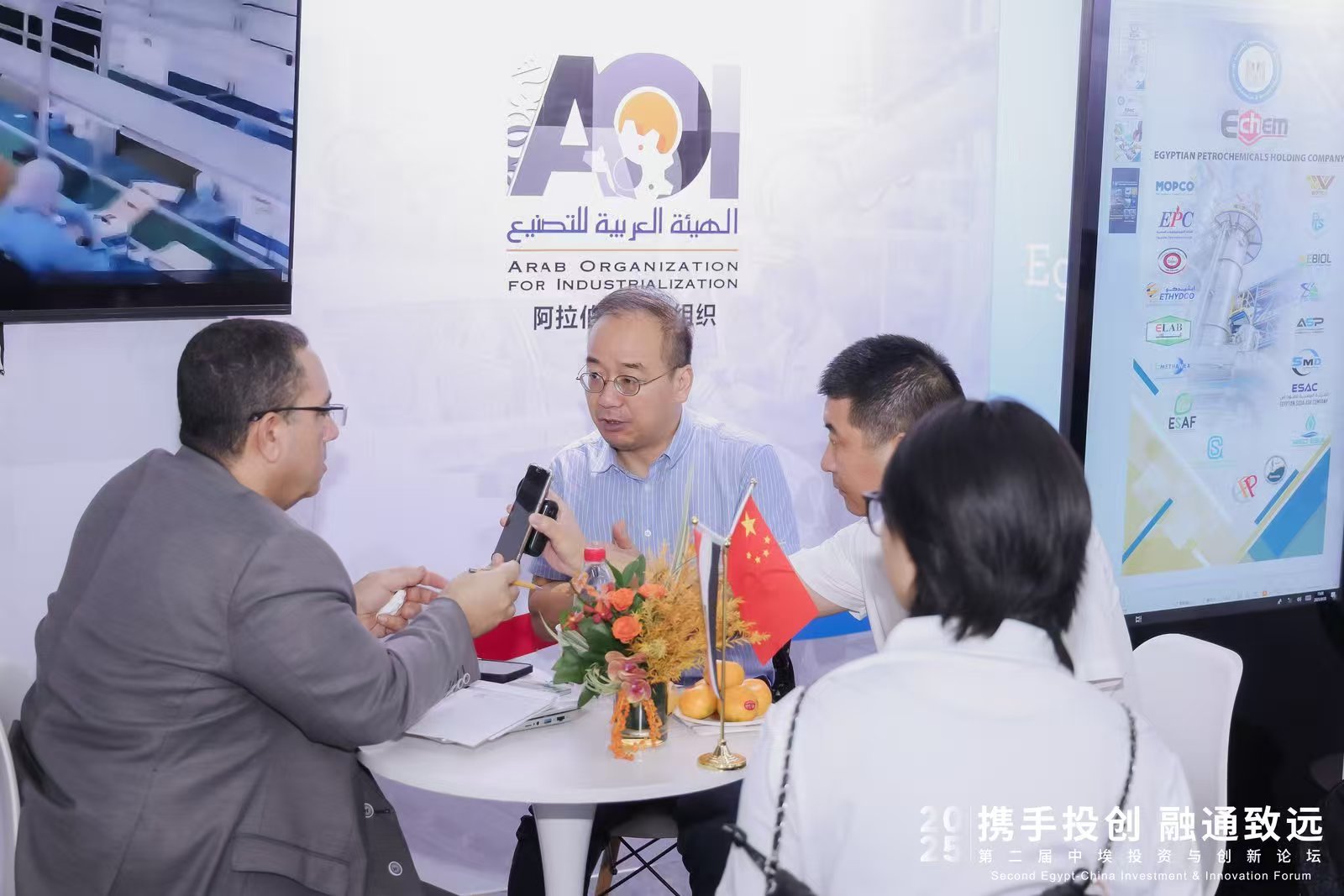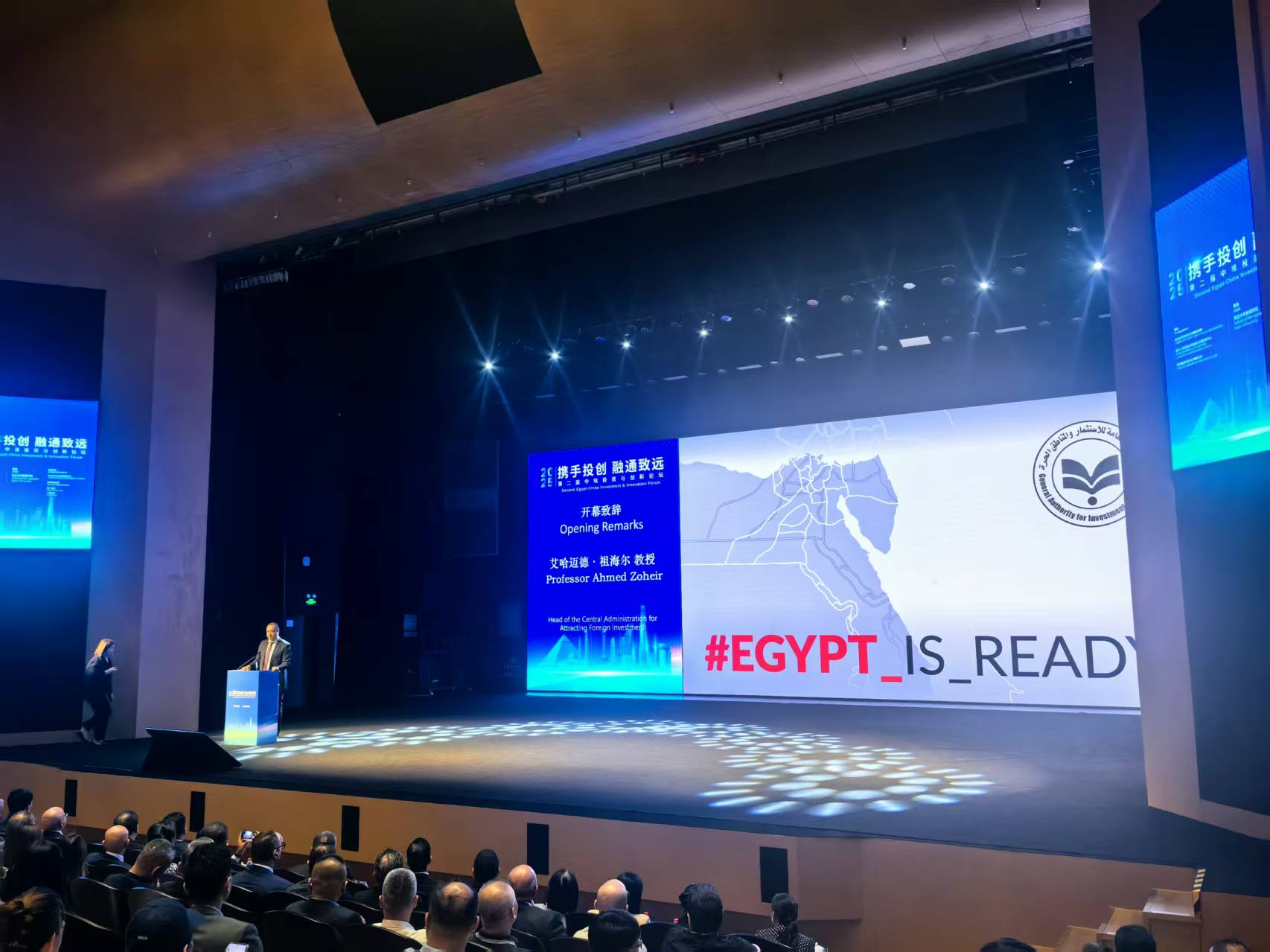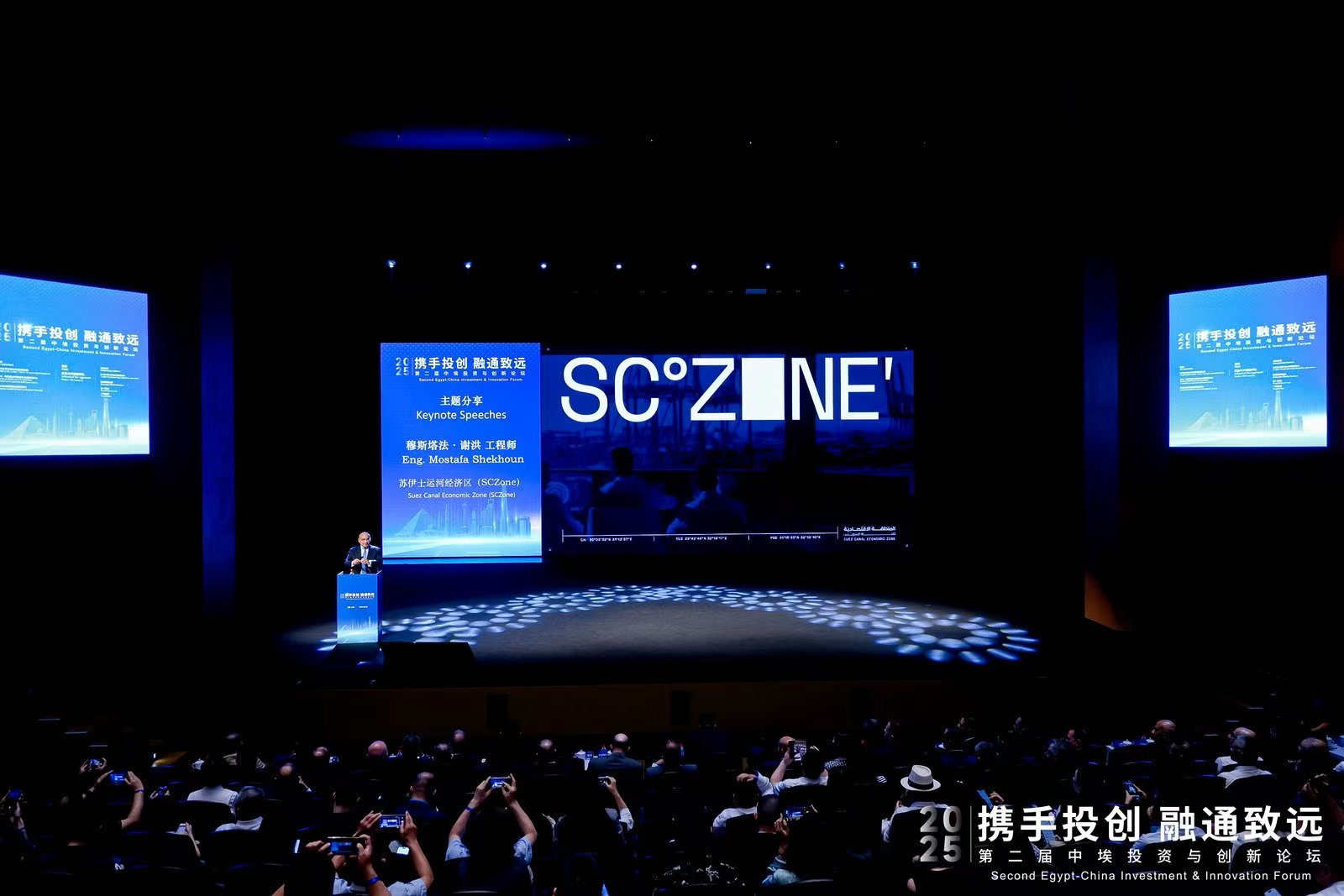 Egypt Is New Hotspot for Chinese Firms Going Global
Egypt Is New Hotspot for Chinese Firms Going Global(Yicai) Sept. 30 -- Egypt is a crucial hub connecting Asia, Africa, and Europe. It has been increasingly attracting Chinese capital thanks to its unique geographical advantages, open market environment, and firm commitment to reform.
Egypt is ready to welcome Chinese investors, according to members of a high-level Egyptian delegation that attended the second China-Egypt Investment and Innovation Forum, hosted by Fudan University's School of Management in Shanghai yesterday.
There are about 2,850 Chinese companies active in Egypt, with their cumulative investment in the African country exceeding USD8 billion.
"Egypt became the number one recipient of foreign direct investment in the entire African continent for the last three consecutive years," said Ahmed Zoheir, head of the country's Central Administration for Attracting Foreign Investment.

Egypt's FDI inflow surged to USD46.1 billion last year, climbing to ninth from 32nd the previous year in the global ranking. This reflects the success of the country's aggressive reform to make its business environment more attractive, more resilient, and more conducive.
Egypt's competitive advantages include a strategic geographical location, a young and skilled labor force of over 31 million, a network of trade agreements with more than 70 countries, and highly competitive utility costs, according to Zoheir.
Besides, the Egyptian government has launched a series of highly attractive policies, including fiscal incentives, such as a 10-year exemption on land use fees and pre-tax deductions for investment costs, and promoted the launch of free trade zones, technology zones, investment zones, and the Suez Canal Economic Zone.
The government has structured incentives to directly reduce capital expenditure burdens. For example, Zoheir explained that if an entity decides to invest USD1 million, the government is committed to refunding USD500,000 in tax deductions over seven years. This effectively halves the real capital cost of major projects.
Another impressive incentive is the so-called golden license, which is a fast track allowing companies to start doing business in the country immediately, Zoheir said. "Recently, we granted the golden license to three major Chinese companies -- Haier, Midea, and Xinxing -- as a strong signal of our commitment to fast-track and to facilitate high-impact projects," he noted.
From Policy to Practice
The SCZone is a model of China-Egypt cooperation. Mostafa Shekhoun, deputy chairman of the SCZone, stressed the importance of trust, which is the main factor for any business to do trading or investments.

When asked how the 455-square-kilometer hub with four industrial zones and six seaports attracted 40 factories, including 25 operated by Chinese enterprises, in such a short period, Shekhoun said: "To gain the trust, you have to be very transparent for the other side."
He explained that when a Chinese investor asks about the adequacy of the power supply, he does not make empty promises. Instead, he frankly provides all details and tries to accommodate all requests.
Regarding the SCZone's administrative efficiency, Shekhoun explained that it adopts a "one-stop" approach. "We have all the government entities in there, so that investors do not have to go to this ministry or that department, they only go to one place to take all the approvals of the licenses." This transparent approach has proven effective, with half of recent investments coming from China.
Private sector facilitators also play a crucial role in attracting FDI. For example, Kemet Industrial Investments is a government-backed strategic facilitator helping investors navigate regulations and bureaucracy and mitigate risks to focus on what they do best to build a world-class manufacturing operation, said Ahmed El-Abd, general manager of Kemet Industrial Investments.
Kemet Nefertari, the joint venture between Egypt's Kemet Industrial Investments and China's Huadian Switchgear, demonstrates how private intermediaries can bridge the gap between Chinese capital and Egyptian opportunities.
Egypt's ambitions extend beyond industrial parks to urban development. Khalid Abbas, chairman of the Administrative Capital for Urban Development, unveiled plans for a new capital city described as a "smart, green, sustainable city," larger than Singapore and designed to accommodate over 10 million people.
From Manufacturing to High-Tech
Even though over two-thirds of the Chinese investment in Egypt is concentrated in the manufacturing sector, the breadth and depth of cooperation are rapidly expanding. Zoheir highlighted potential in sectors such as automobile, renewable energies, electronics, pharmaceuticals, and mining.
Egyptian officials provided specific targets for key sectors. For mining, Yasser Ramadan, chairman of the Egyptian Mineral Resources Authority, said that the sector plans to increase its contribution to the gross domestic product from 1 percent to 6 percent by 2030, leveraging Egypt's rich deposits of gold, phosphates, kaolin, copper, and rare earth elements.
The petrochemicals sector offers substantial near-term opportunities. There are 10 projects in the pipeline worth USD13.5 billion, focusing on soda ash, bioethanol, sustainable aviation fuel, and silicon metal, with Chinese companies already involved as contractors, according to EMRA official Wael Mokhtar.
In addition to traditional industries, such as textiles, automotive, and chemicals, the SCZone is actively attracting investment in emerging industries, including green hydrogen, pharmaceuticals, medical devices, information and communication technology, and data centers.
"Egypt is one of the best countries to have the green hydrogen industry because green hydrogen would require solar energy, wind energy, and seawater to be desalinated," Shekhoun said. “We are very much closer to Europe, where the main market for green hydrogen is.”
Cultural Exchange
Looking ahead, with the Egyptian government opening a direct investment channel for the Chinese yuan in April and the deepening of financial cooperation between the countries' central banks, China-Egypt economic and trade relations are facing unprecedented opportunities.
However, sustainable partnerships require more than financial mechanisms, they need human connection, according to the Egyptian delegation members.
"It is very important to increase the cultural barriers because maybe you are not aware of our culture, and some of the Egyptians are not aware of Chinese culture," Zoheir said. "So we have to create a sort of synergy between both cultures."
Fudan University should take the initiative to connect entrepreneurs and universities, Zoheir suggested.
Editor: Futura Costaglione